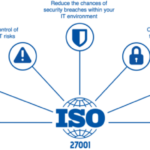
There are many valuable ICT skills to learn in 2024, and which ones are the most valuable will depend on your personal interests and career goals. However, some of the top ICT skills that you may want to consider learning include:

Programming: Programming is a fundamental skill in the field of ICT, as it allows you to create and manipulate software and systems. Learning how to code can open up a wide range of career opportunities, including working as a software developer, data scientist, or IT specialist.
Data analysis: The ability to collect, process, and analyze large sets of data is becoming increasingly valuable in the digital world. Learning how to use tools such as Excel and SQL can help you to extract insights from data, which can be useful in a wide range of industries.
Networking: Networking involves the use of hardware and software to create and manage computer networks, such as local area networks (LANs) and wide area networks (WANs). Learning about networking can help you to design, implement, and maintain network systems, and can lead to careers such as network administrator or network engineer.
Cybersecurity: As more and more of our lives move online, the need for effective cybersecurity measures is increasing. Learning about cybersecurity can help you to protect computer systems and networks from threats such as hacking and malware, and can lead to careers such as security analyst or security engineer.
Cloud computing: Cloud computing involves the use of remote servers to store, manage, and process data. Learning about cloud computing can help you to use and manage cloud-based systems, and can lead to careers such as cloud architect or cloud solutions developer.
Project management: Project management involves planning, organizing, and managing the resources needed to complete a project successfully. Learning about project management can help you to effectively manage ICT projects, and can lead to careers such as project manager or IT project manager.
User experience (UX) design: UX design involves creating digital products and services that are easy to use and enjoyable for the people who use them. Learning about UX design can help you to create effective and user-friendly digital experiences, and can lead to careers such as UX designer or UX researcher.
Machine learning: Machine learning involves using algorithms and statistical models to enable computers to learn from data and make predictions or decisions. Learning about machine learning can help you to build intelligent systems, and can lead to careers such as machine learning engineer or data scientist.
Mobile app development: Mobile app development involves creating applications for smartphones and other mobile devices. Learning how to develop mobile apps can help you to create useful and engaging apps, and can lead to careers such as mobile app developer or app designer.
Web development: Web development involves creating and maintaining websites. Learning how to develop websites can help you to create effective and user-friendly online experiences, and can lead to careers such as web developer or web designer.
Artificial intelligence (AI): AI involves creating intelligent systems that can simulate human-like abilities such as learning and problem-solving. Learning about AI can help you to build and apply AI solutions, and can lead to careers such as AI engineer or AI researcher.
Internet of Things (IoT): The IoT involves connecting everyday objects to the internet, allowing them to send and receive data. Learning about the IoT can help you to design and implement IoT solutions, and can lead to careers such as IoT developer or IoT architect.
Blockchain: Blockchain is a distributed database technology that enables secure and transparent record-keeping. Learning about blockchain can help you to understand and use this technology, and can lead to careers such as blockchain developer or blockchain engineer.
DevOps: DevOps is a philosophy and set of practices that aim to improve collaboration and efficiency in the development and operation of software systems. Learning about DevOps can help you to implement and manage DevOps processes, and can lead to careers such as DevOps engineer or DevOps manager.
Digital marketing: Digital marketing involves using digital channels to promote products, services, or brands. Learning about digital marketing can help you to create and implement effective marketing campaigns, and can lead to careers such as digital marketer or social media manager.
Graphic design: Graphic design involves creating visual content for print and digital media. Learning about graphic design can help you to create engaging and effective visual materials, and can lead to careers such as graphic designer or visual designer.
Audio/video production: Audio/video production involves creating and editing audio and video content. Learning about audio/video production can help you to create professional-quality audio and video materials, and can lead to careers such as audio/video producer or audio/video editor.
Technical writing: Technical writing involves creating clear and concise documentation for technical products and processes. Learning about technical writing can help you to produce effective technical documentation, and can lead to careers such as technical writer or technical editor.
Translation and localization: Translation and localization involve adapting content for different languages and cultures. Learning about translation and localization can help you to create content that is accessible to a global audience, and can lead to careers such as translator or localization specialist.
Customer support: Customer support involves providing assistance and support to customers of a product or service. Learning about customer support can help you to effectively assist and resolve customer issues, and can lead to careers such as customer support representative or customer service manager.
Sales: Sales involves identifying and pursuing potential customers to sell products or services. Learning about sales can help you to effectively promote and sell products or services, and can lead to careers such as sales representative or sales manager.

Learning and Developing these skills in 2024 can open up a wide range of career opportunities for you in the ICT field, and can help you to stay competitive in a rapidly changing digital world.












